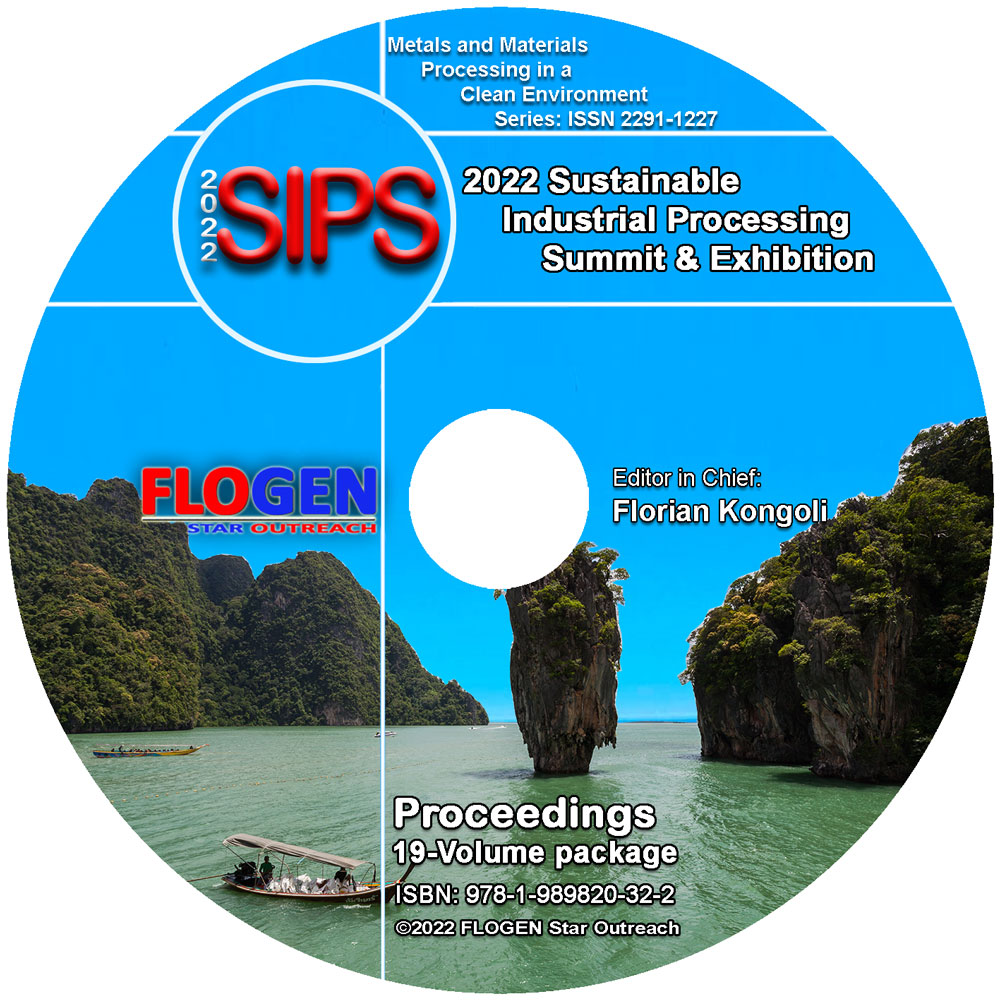2022-Sustainable Industrial Processing Summit
SIPS2022 Volume 10 Nolan Intl. Symp Laws & Their Applications
| Editors: | F. Kongoli, M. McNeil, Y. Hayakawa, M. Dibra. |
| Publisher: | Flogen Star OUTREACH |
| Publication Year: | 2022 |
| Pages: | 126 pages |
| ISBN: | 978-1-989820-52-0 (CD)) |
| ISSN: | 2291-1227 (Metals and Materials Processing in a Clean Environment Series) |

CD shopping page
Competition Law in a Sustainable and Digital Economy
Barbora Jedlickova1;1TC BEIRNE SCHOOL OF LAW, St Lucia, Australia;
Type of Paper: Plenary
Id Paper: 389
Topic: 61
Abstract:
Fair and free competition in the market enhances economic welfare and ultimately consumer welfare. Competition law, then, creates market conditions that promote fair play and thus creates a situation whereby the most creative competitors with the best efficiencies are rewarded with the best profits.
The current digital age, combined with the increasing focus on sustainability, have introduced many challenges for competition law and its policy, and have disturbed established approaches to competition law across the globe. This situation has led to international and national discussions, which have resulted in some jurisdictions, such as the EU, introducing first new laws and policies. Other jurisdictions, such as Australia, are still considering the best way to address the digital-age challenges for competition law.
However, this ongoing introduction of new laws and policies specifically adapted for competition law in the digital market is not sustainable, in particular because the digital world is highly innovative and is evolving at extreme speeds.
This article addresses the term ‘sustainability’ from two perspectives, marrying the two perspectives together: first, the sustainability of the law, in particular of competition law; second, sustainability as the central notion in the United Nations’ 2030 Agenda for Sustainable Development and its 17 goals.
In this article, I start by exploring how competition law can support the United Nations’ 2030 Agenda for Sustainable Development using a teleological approach by analysing competition law’s objective(s) and its role in connection with the Sustainable Development goals. Once I outline the exact synergies, I put them in the context of some of the challenges that competition law faces in the digital age. I then discuss the sustainability for competition law in the digital economy. In that regard, I put forward arguments for maintaining the status quo of the general competition-law rules. I explain that for competition law to be sustainable and to enhance the particular UN Sustainable Development goals, it is the interpretation of competition law, as well as its policies and approaches, that need to be adjusted, rather than the general competition-law rules.
This article stands on qualitative research, utilising, doctrinal, economic-legal, historic-legal, comparative and jurisprudential methods.
Keywords:
Sustainability;competition law;digital economyReferences:
•United Nations, ‘Sustainable Development Goals’, available at•Organisation for Economic Co-operation and Development, ‘Sustainability and competition’, available at
•A. Ezrachi & M. E. Stucke, Virtual Competition - The Promise and Perils of the Algorithm Driven Economy (Harvard University Press 2016).
•Barbora Jedlickova, ‘Digital Polyopoly’ (2019) 42(3) World Competition, 309.
•Barbora Jedlickova, ‘Beyond the Economic Approach: Why Pluralism is Important in Competition Law’ (2018) 37(1) UQLJ, 41.